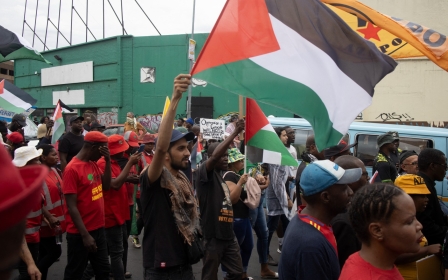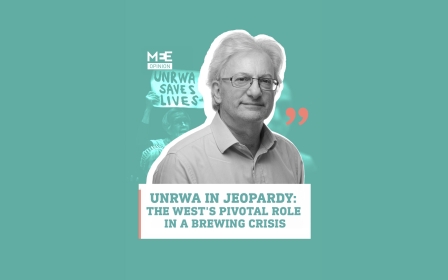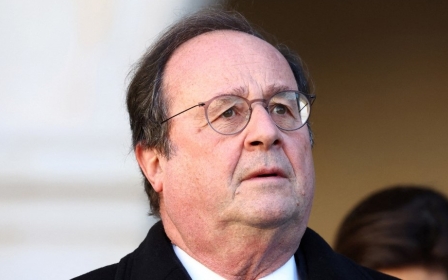War on Gaza: Thousands at risk of death in Khan Younis hospitals under Israeli siege
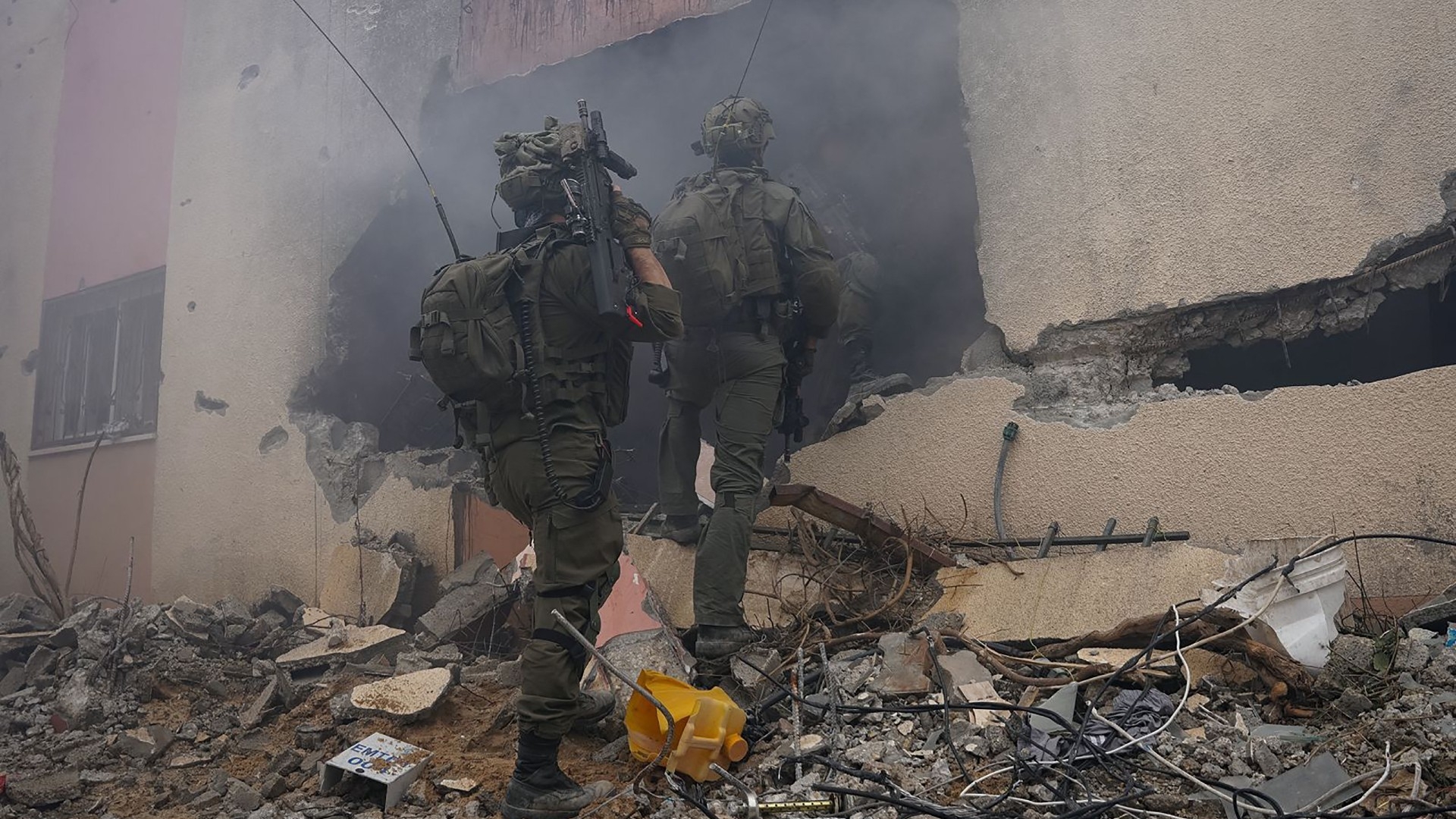
Nasser Hospital in Khan Younis - the largest still functional medical facility in Gaza - is facing a major "humanitarian catastrophe", according to a senior Palestinian health ministry official.
Ashraf al-Qudra, spokesperson for the ministry, said on Thursday that Israel's complete siege of the hospital and targeted attacks in its vicinity had left thousands inside the complex at imminent risk of death.
“[There are] 300 medical staff, 450 wounded, and 10,000 displaced people in the Nasser Medical Complex being killed and starved,” he said.
The besieged hospital is suffering from an acute shortage of anaesthesia and intensive care medication as well as surgical supplies, added Qudra.
Staff and patients are in danger at al-Amal hospital in Khan Younis, according to the Palestine Red Crescent Society (PRCS), which runs the facility.
New MEE newsletter: Jerusalem Dispatch
Sign up to get the latest insights and analysis on Israel-Palestine, alongside Turkey Unpacked and other MEE newsletters
"Very close artillery shelling to PRCS Al-Amal Hospital, with shrapnel hitting the hospital building amidst continued heavy gunfire, posing a danger to the safety of staff and patients," the organisation wrote on X on Thursday.
The PRCS also said its staff were deliberately targeted by Israeli forces on Wednesday as they carried out a mission to evacuate a number of wounded people in the besieged enclave.
Paramedic Mohammed al-Omari was killed as a result, and two of his colleagues were wounded.
“This brings the number of colleagues killed while carrying out their humanitarian work since the beginning of the war on Gaza to 12,” the PRCS said.
At least 27,840 Palestinians have been killed since 7 October, the Palestinian health ministry said on Thursday. More than 67,317 have been wounded from Israel’s onslaught on the blockaded territory, the ministry added.
The ministry said that in the past 24 hours Israeli forces have killed at least 130 people and wounded 170.
Buffer zone a 'war crime'
Meanwhile, UN High Commissioner for Human Rights Volker Turk said on Thursday that Israel's attempts to create a "buffer zone" in the Gaza Strip through the widespread destruction of buildings inside the enclave was a war crime.
"Extensive destruction of property, not justified by military necessity and carried out unlawfully and wantonly, amounts to a grave breach of the Fourth Geneva Convention, and a war crime," he said.
A Hebrew University study cited by The Wall Street Journal in late January said Israel had razed nearly 40 percent of the 2,824 buildings in Gaza located within a kilometre of the border.
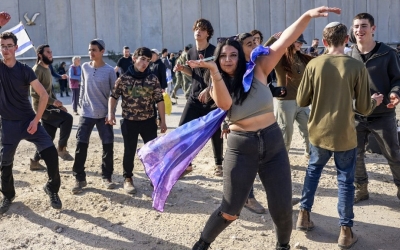
In the occupied West Bank, a video showing violent masked Israeli settlers rampaging through Bizzariya, a Palestinian village, was published by Israeli rights group Yesh Din.
Earlier on Wednesday, a Palestinian was shot and killed at an Israeli military checkpoint near the entrance to the village of Deir Sharaf, west of Nablus. Another young man was wounded after being shot in the hand, according to Wafa news agency.
More than 6,920 Palestinians have been arrested by Israel in the occupied West Bank since 7 October, according to a new report released by the Palestinian Prisoners Society.
“This includes those who were arrested from their homes, military checkpoints, and those who were forced to surrender themselves under pressure,” the group said.
The developments came as Israeli Prime Minister Benjamin Netanyahu rejected Hamas's conditions for a deal to release the captives it holds in Gaza.
In a press conference late on Wednesday, Netanyahu instead vowed to continue Israel's military offensive until "total victory" was secured, saying his country would achieve this "within months".
"We won't settle for less," he said. "Surrendering to Hamas's delusional demands ... will not only not lead to the release of the hostages, but will invite another massacre."
Earlier on Wednesday, several news organisations, including Middle East Eye, said they had seen the Palestinian group's proposed three-stage ceasefire plan.
Middle East Eye delivers independent and unrivalled coverage and analysis of the Middle East, North Africa and beyond. To learn more about republishing this content and the associated fees, please fill out this form. More about MEE can be found here.


